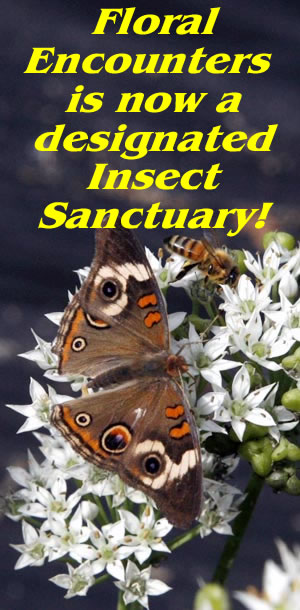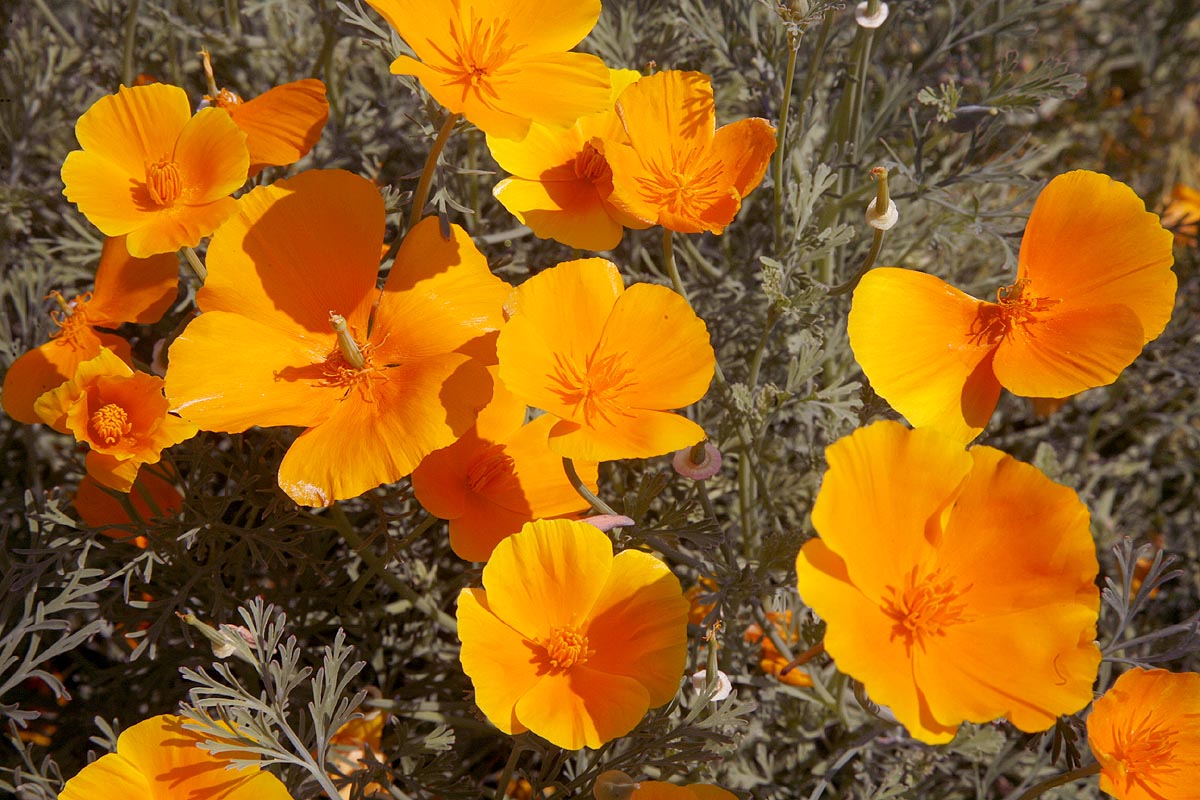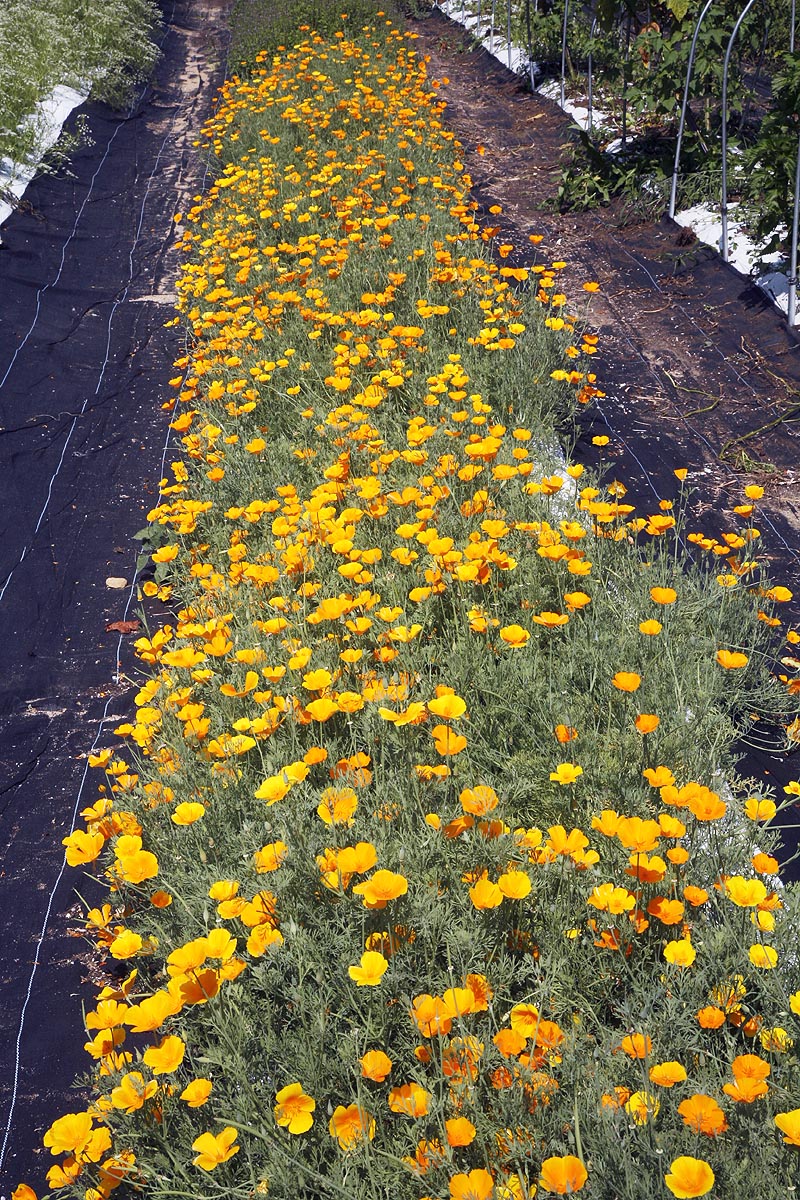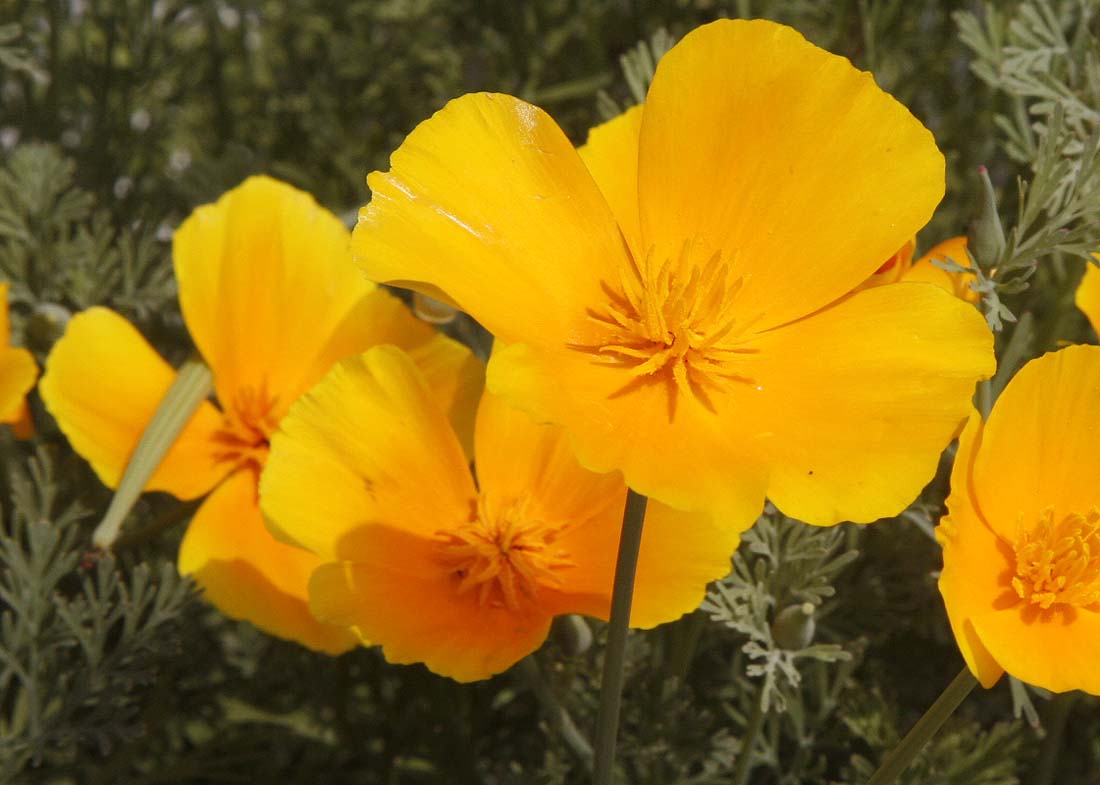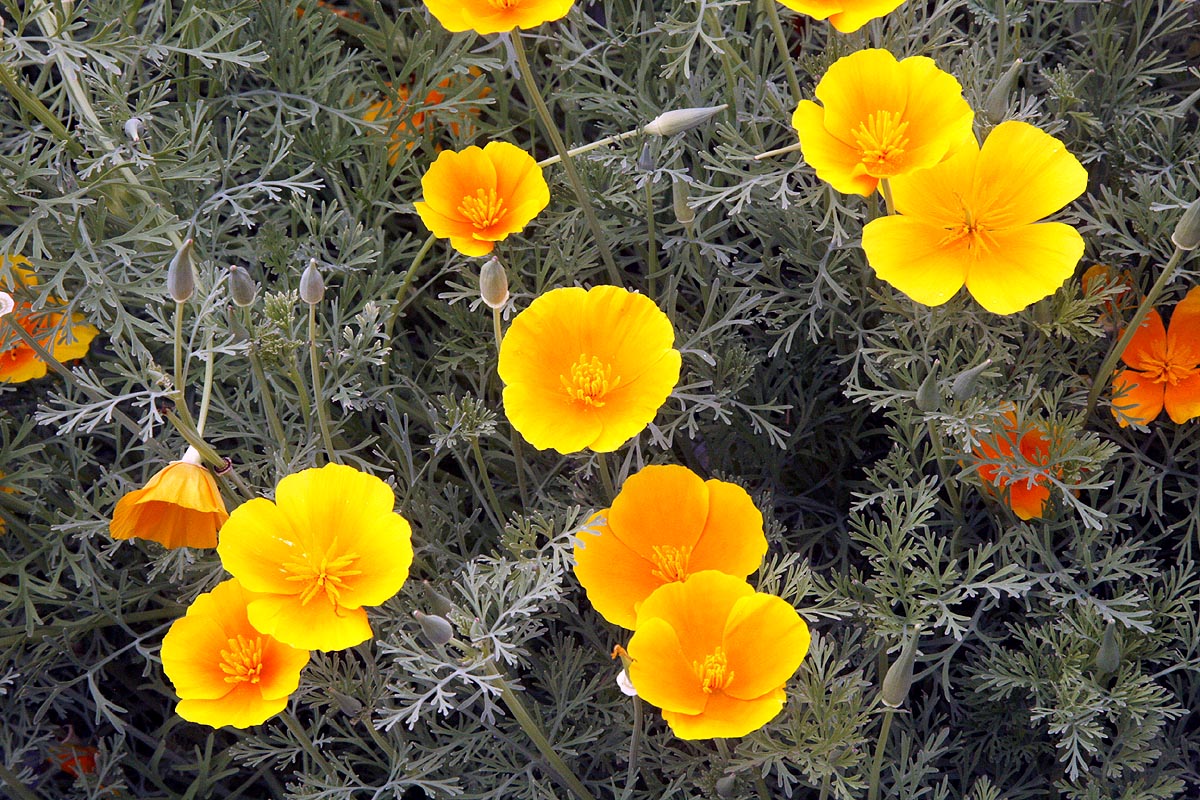A really cheerful native plant that will bring easy color to any garden. Easy
to grow and maintain no matter where you live.
This little plant is very drought tolerant and grows well on poor soil, in fact
it will do better there than on a richer soil where it will often produce a
lot more foliage but fewer flowers. It does not like damp or wet soil, and it
does need full sun. It's great for areas where you don't really know what else
to do and don't want to have lawn. It's also very good as a bedding plant or
low boarder but best and most impressive in mass plantings rather and individual
plants. It will bloom profusely in mid spring but can flower throughout the
whole summer if sufficient water is present.
Native to California it grows in dry regions for Baja to Oregon. This plant
is grown as an annual in most parts of the country but in favorable conditions
is can behave like a short lived perennial and overwinter for a second year.
It's hardy from zones 7-10. In most areas it should be grow as an annual but
these little plants will readily reseed themselves and can return year after
year. It will tolerate light frost. It's also popular with honey bees. Not suitable
for cut flower as petals fall off as soon as the flower is picked.
Description of California Poppy (Eschscholzia californica).
The flowers are usually brilliant orange, but can be red or yellow. It has four
paper thin, silky-textured, petals forming a cup or flute shape which can reach
up to 3" across. It has grayish green fernlike foliage the leaves being
up to 6- 8" long and finely dissected. The plant can reach a foot or so
in height with the flowers standing above the foliage in a very showy manner.
The flower petals close at night or in cold, windy weather and open again the
following morning, although they may remain closed in cloudy weather.
Growing California Poppy (Eschscholzia californica) from seed.
Plants give the best showing if planted in groups of 2-3 seeds not individually.
Plants tend to be a little sparse but planting them close together gives a robust
clump with more prolific flowers.
While many sources state the this plant needs direct sowing we have found our
best results with sowing indoors and transplanting. Direct sowing has produced
much poorer results for us. Experiment with both methods and see what is best
for you.
Direct sowing.
Sow as soon as the soil is workable in the springtime in fun sun location. Loosen
soil to about 4-6" deep and rake the ground over well, sprinkle the seeds
and rake in about 1/4 or less" Mixing the seeds with a cup of sand or fine
peat moss helps to evenly distribute the seeds. Remove any significant weeds
that will compete with your new plants. Should you wish to have the plants grow
in rows, place 2 to 3 seeds every 3 to 4 inches apart down a row. Make each
row about 12 inches apart to accommodate the size of the adult plants.
Sowing indoors.
Starting seeds inside allows you to get a jump on the winter weather and have
larger bigger plants when the weather is good enough. However poppies don't
like to be disturbed that much so indoor care takes a little more care.
Don't use open seed trays where seedlings roots will be disturbed when transplanting.
We prefer medium sized plug trays for this job but you can also sow 2-3 seeds
in a small pot and allow them to grow on. Once the plants are large enough harden
off outside and as soon as you see the roots appearing at the bottom or the
pot, or sooner transplant them to their desired location taking care not to
disturb the roots too much. This produces the largest plants and the fastest
color.
Location and Care of California Poppy (Eschscholzia californica)
Sadly these poppies cant take the cold so they die off when temperatures go
below freezing for very long. While some sites state they are hardy to zone
5 here in 6b even in a sheltered location with heavy mulch we cant keep many
of them alive over the winter and if the winter is harsh they will all die.
So if you are 6b and above consider this plant as an annual. Below that poppies
often come back for 3-4 years but will then die off. Often they will self seed,
even in cooler temperatures and we suspect that many plant that are claimed
as overwintering are in fact seedlings from last years plants.
California poppies like full sun. They are not really fussy about the soil
type but they don't like wet feet. A well drained soil is essential so they
wont do that well on clay unless it is amended with compost. (adding sand really
does not help that much). They can tolerate low amounts of water but will do
better if there is more water available. If planted in spring they will bloom
within about 45 days and can produce masses of blooms throughout the summer
months if watered. Our field usually has flowers from late June until late August.
Once the plants have finished flowering, if it's not too late in the season cutting
the plants down to about
6 inches will often give a second flush of leaves and
flowers and while these will not be as prolific as the first flush it does provide
more color.
Feeding and watering of California Poppy (Eschscholzia californica).
While California poppies will do quite well with low water and no feeding even
on poor soil the amount of flowers and the length of flowering will be dramatically
reduced. For long blooming a well drained soil with some organic material mixed
in is ideal along with a bi weekly watering depending on the amount of rain.
With reasonable watering and good organic material plants can flower for months
even in high temperatures.
Overwintering.
If you live in 6b and above perhaps even 7a mulching your plants well in the
late fall may help them survive over the winter. Using chopped leaves mixed
with a few grass cuttings (do not use all grass cutting that will smother them)
is ideal. Mulch to about 4 inches deep.
In spring when temperatures rise to about 55-60 gently pull back the mulch to
allow the plants to grow.
Medicinal uses of California Poppy (Eschscholzia californica).
Has been used by local tribes as a pain killer and sleep enhancer. It is also
used in the treatment of restless leg syndrome.


